« April 2014 | Main | June 2014 »
May 31, 2014
(Van Doren on) Wordsworth.
We no longer require humor in poets. We demand salvation. Of that commodity, Wordsworth still supplies the purest sort.
--Mark Van Doren, 1950, commenting on the subtle graduation of William Wordsworth (1770-1850) from his role as "nature poet" to one of philosopher who offered hope and reassurance to troubled Europe.
All his life, Wordsworth preferred the beauty and solitude of the outdoors to London and the most literary cities on the Continent. His poetry was seeing, feeling and emotional, its inspiration springing from northwest England's famous Lake District, where he was born, wrote and spent most of his life. In his younger years especially, the upheavals in France between 1789 and 1799, and his extensive travels through Europe, made Wordsworth sad, cynical and pessimistic about man and society. Writing 100 years after Wordsworth's death, Mark Van Doren (1894-1972), the remarkably influential Columbia English professor, himself a poet who won the Pulitzer Prize in 1940, gave Wordsworth high marks for his power in his later years "to soothe and console an age fallen victim to philosophic despair."
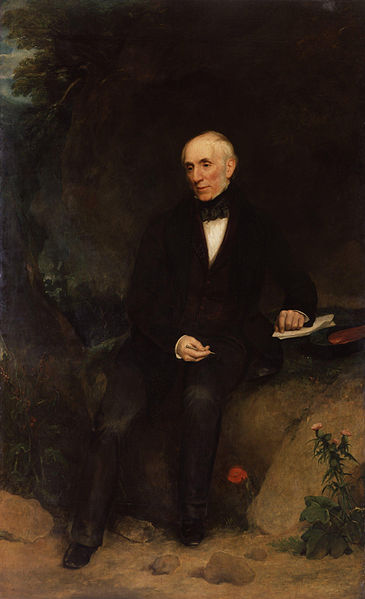
Wordsworth in the Lake District
Posted by JD Hull at 10:15 AM | Comments (0)
May 30, 2014
'Oh New York City you talk a lot...'
You look like a city. You feel like a religion.
--L. Nyro, 1969

Paramount newsreel cameraman works the Easter Parade, 1948. (Bettmann/CORBIS)
Posted by JD Hull at 12:59 AM | Comments (0)
May 29, 2014
The Rules
A few more words about our world-famous The 12 Rules of Client Service, first published here in April of 2006. Think of these rules as a 12-step program for suits and their employees: lawyers, accountants, consultants, execs, technicians and countless other occupations now laboring to provide solutions to customers in the new global services economy. The goal of the 12 Rules is to align the interests of clients/customers and service providers to the fullest extent possible.* We think they do that well. Finally, the rules (while badass, make no mistake) are not perfect. Got suggestions or criticisms? We'd love to hear them.
*The 12 Rules were not written for yah-yah "happy atmosphere" shops like, say, Starbucks or Disney World. The rules are not about being friendly, nice, obsequious or servile with the client or customer.

Posted by JD Hull at 11:59 PM | Comments (0)
Pantheon: Lucy Liu.

Posted by JD Hull at 11:06 PM | Comments (0)
Much beloved, charismatic, handsome trial lawyer "trained as a spy."
Today I am coming clean with everyone that, during summer breaks at college and law school, I was "trained as a spy". Training took place at government facilities in Durham, North Carolina, Washington, D.C. and Cincinnati, Ohio. Also at a special counterintelligence school operating in downtown Cleveland. There. I said it. That's all I should reveal at this point. I am tired of living this lie. I'll provide some details, and answer questions, in future posts.
.jpg)
Shameful decades-long ruse.
Editor's Note, June 2, 2014: Apparently, we need to disclose that this was a joke. The idea was to diss young Edward Snowden's probably untruthful and certainly grandiose statement to NBC's Brian Williams last week that he was "trained as a spy." We are fond of Snowden but his statement, even if true, was ill-advised. Not enough context and wrong time and place. However, we are advised that, in the years 1982-1986, Hull regularly (i.e., nightly) drank and consorted with a portly male Russian spy at a Georgetown bar called Garrett's. The bar, not the Russian, was named Garrett's. Hull claims he thought that the Russian was just another D.C. drunk.
Posted by JD Hull at 08:51 PM | Comments (0)
May 28, 2014
John F. Lynch: "Sitting on the Wall." Or how should law firms think about GCs and In-house Counsel?
We had a good reaction in the blawgosphere two weeks ago when we introduced and ran "Sitting on the Wall", an address given at a law firm department retreat ten years ago by former BigLaw patent litigator and partner John Lynch. And so we are posting it again.
Good afternoon.
I have been asked to speak briefly about my observations about the practice of law, and in particular about developing business: how have I done it and the guidelines that I have pursued in that effort.
At the start, I will observe that the how and why legal business gets gotten is perhaps the most mysterious phenomenon related to the practice of law. Most of us lawyers are Type A personalities which, as a corollary means we are paranoids. We wonder what we’ve done wrong. Why is it that clients will not hire us? What is it out there that is conspiring against our developing a solid client base producing repeat business year after year?
I cannot dispel the paranoia, in fact I encourage it. It’s healthy particularly if it keeps us alert and attentive to our clients’ wants and needs. But when we look at ourselves, we are looking in the wrong place to answer how to develop clients. We have to look at the clients and what they want.
From a perspective that is at least long, I can offer overarching counsel that you develop clients and client loyalty by doing what I call “sitting on the wall.” It’s kind of a parable, but I’ve never been able to explain it better than “sitting on the wall.” In that parable, the client has invited us to his or her castle for purposes of defending it in one fashion or another, and your message to the client by both words and action is simple, “You go to sleep tonight with your family and do not worry. Even though it’s cold and rainy, I will sit on the wall, and if the Huns come in the dead of night I will pour hot oil on them and drive them away...and I will try not to wake you in the process.”
I wound up with this philosophy about sitting on the wall as a result of making three observations that I call rules about the business of lawyering. As I said, being self centered lawyers as we are it is difficult to begin where we must begin not by looking inside ourselves, but rather by looking inside the individuals from whom we seek employment. Who are these people? What are they looking for? Are they different from us, and if so, how so? These are inquiries into customer needs, customer preferences and customer impressions and these are the core questions that must be made in any service business.
First Rule
And that is what we as lawyers do. We provide a service. So that is the first rule: To recognize and understand that lawyering is a service business. As an individual, you must get out of your head that that you are marketing a product. We are not selling the product of superior legal analysis, or the product of skillful advocacy, or even the product of artful cross-examination or eloquence before a jury. You or your firm will so advertise, but that’s of no consequence.
If you think about it, the typical client is inundated with material about the product offered by law firms, and for the most part he or she probably has concluded that there are a lot of lawyers offering good product.
Now that is not to say that there may not be in this audience a lawyer whose skills in one or another area are so extraordinary, so exceptional, that clients will flock to acquire that product. But even in those instances, I will suggest that greater success could be realized if that extraordinary talent could be repackaged and marketed as a service. And for the overwhelming majority of us, we are selling a service, and we will succeed if our service is good. The essence of service by its very nature means that you are adapting to the client’s needs and desires. You are not requiring the client to adapt to you.
Second Rule
The second rule is to recognize that clients have careers too. It has long been the case that the determination of success or failure may be much more arbitrary for an in-house lawyer or a corporate executive than it is for us as outside counsel in a law firm. After all, we all have the privilege of speaking only about our victories when in the presence of the client, since the client may not be aware of the defeats. But there is no corporate general counsel out there whose entire won-loss record is not known by the CEO who sits over him and who controls his employment. So keep in mind, that the folks who are hiring us are entrusting us with preservation of at least a part of their career. They have a problem of one type or another, and they are putting that problem in our hands for us to solve.
That’s what virtually all lawyering is: problem solving. There is a problem because the client is accused of impinging on the rights of some one else or because that someone else is perceived as intruding somehow on the rights of the client. Sometimes the problem has not yet matured, and the lawyer is asked to assure it does not mature. The client’s commission is: Make the problem go away. Sure, they want to remain informed. Sure, they want to participate. Sure, they want and need a budget that is followed. But the bottom line is that the client gave us a problem to solve, and since we aspire to represent clients in the most difficult and most important cases, what we aspire to is to represent our clients in solving the largest problems that they have. For the individual within the client responsible for hiring us, those are career shaping employments.
It is important that we remain conscious that our employer is not a faceless corporation with a lawsuit or other adversarial contest to win. Our client truly is a lawyer or executive with a career shaping problem to solve. That realization will affect how you deliver your service, and how you work to relieve the inevitable tension that can build during an employment.
Which leads to the third rule.
Third Rule
The third rule is to remain aware that, despite the requests for updates and briefings, in virtually every employment the client is trying to transfer the load that is his problem to you so the problem is no longer a burden, so it no longer inhibits the client’s activity. In short, the client wants you on that wall looking after his problem and being mindful of his career. If the night is cold and rainy, and if down in the client’s bedchamber the fire is roaring and the best brandy has been opened, you are still to sit on the wall and look for the Hun. You may get a visit out there on the wall, and you may even get a hot chocolate, but if you have the client’s ultimate trust you will never be invited into the warm bedchamber while there is a possibility of attack. It’s not ingratitude. It’s simply that you have been entrusted with this job and the job requires sitting on the wall--if you don’t do it someone else will have to. And if that someone else does it and does it well, that someone else will win the client’s trust. Only when the enemy no longer threatens can you leave that post on the wall.
I had a very talented partner who will remain nameless who seemingly had all the tools for success. He was bright, able, eloquent, charming and had an excellent understanding of the law. But if you watched closely around clients, his message was, “You go to sleep tonight with your family and don’t worry. But because it’s raining, I’m going back to my castle to enjoy the fire and perhaps the brandy. But don’t worry. I have a very fast horse, and if the Huns attack, just let me know and I will be here immediately and I will drive them off.” It didn’t sell, and you could see it. That message was communicated indirectly in many ways, but the upshot was that clients were never able to be confident that a problem had been fully offloaded to that lawyer. That lawyer seemed always to impose conditions on the service. There were inconveniences that took precedence over his rendering of service. The product was admittedly good, but the service was lacking.
When you get to the how-to of all of this, I could go on and on, but the take-away is simple. An employment is not about you or about the firm. It is about serving some individuals by solving their problems efficiently as possible. So the hallmarks of a lawyer giving good service are timeliness, reliability, accessibility, and making sure that the best surprise is no surprise, all in the context of a tacit acknowledgement that you as outside counsel are committed to be of service. Also take a genuine interest in the career of the individuals that employ you. Tell them, occasionally in so many words, that you are committed to make them successful. Cultivate a culture of being helpful, of providing assistance. When you are dealing with a corporate client with a corporate law department, become acquainted with those lawyers and encourage them to give you a call not so you can have a client, but so that you can be helpful. For any minor matter and offer to help if they ever need some he, and offer to help on the cuff. As corporate lawyers grow and ascend into positions of responsibility, the parts of their Rolodex that are most precious are the phone numbers of the outside counsel that they can turn to reliably to assume problems from their shoulders and propel their careers. And even if they move across the country, they will continue to call those numbers when the really threatening problems arise.
And that’s what we are in this business for, right? To do the really important stuff and the hard stuff. Lord knows why we want that, but we do, and the way to get there, as far as I can see is by sitting on the wall.
Thanks for the opportunity to speak to you, and I hope your retreat is a dynamite success.
Copyright 2003-2014 John F. Lynch All Rights Reserved.
.jpg)
Posted by JD Hull at 11:59 PM | Comments (0)
Rule 9: 24/7 for clients and customers of professionals?
Yes, sir. That's exactly what you signed up to do, Sparky. See Rule 9: Be There For Clients--24/7 at our world-class but irritating 12 Rules. You're a new lawyer, accountant, doctor, consultant? It's not about you anymore.

Being a Pro. It's never about you.
Posted by Holden Oliver (Kitzbühel Desk) at 11:59 PM | Comments (0)
May 27, 2014
Sharp Dressed Men.
Cuff links, stick pin. When I step out I'm gonna do you in.
--Gibbons, Hill and Beard
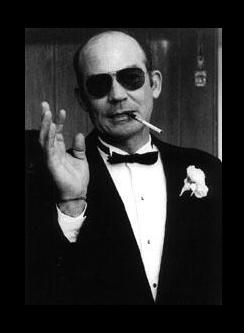
Raoul Duke (1937-2005)
Posted by Holden Oliver (Kitzbühel Desk) at 11:59 PM | Comments (0)
Hey guys, it's okay now. Khaki pants season begins today.
A word about men--yes, we professional men--and khaki. Women may wear any fabric or color they choose in any season. We generally trust their fashion sense, and good taste, not to put the hurt on everyone's vision. Men, however, are mainly dirtballs who have no clue about clothes. So there are rules. One is this: Never (ever) wear khaki pants or khaki suits after Labor Day and before Memorial Day. We guys need to think about khaki like we already think about seersucker suits, gin and tonics and Capital Hill interns. It's just for summer. Today is the day after Memorial Day. It's okay now. Wear your khaki stuff. But pack it all away after Labor Day. Don't unpack it until late May the following year. Repeat.

Photo: Brian Sacawa
Posted by Holden Oliver (Kitzbühel Desk) at 11:59 PM | Comments (0)
Big Moxie Alert: Fair Shake Environmental Legal Services. Seriously.
"A nonprofit law firm incubating the growth of environmental legal services for modest means clients." That's the way Fair Shake Environmental Legal Services, a brand new non-profit with offices in the rustbelt's heavy industry towns of Akron and Pittsburgh, sees itself. Fair Shake is home to several youngish lawyers who seek to right a few wrongs for the little guy. We looked over the website. Unabashedly idealistic and nearly Oberlin College-level politically correct--we were fairly surprised it did not conclude each of its web pages with the iconic late 1960s Harvard Strike fist--Fair Shake seems to have been carefully planned, is well-organized and, above all, is king-hell serious. And it has "funders". One patron is The Heinz Endowments, funded with old H.J. Heinz Company family money, but not connected to the Ketchup King (now owned by Berkshire Hathaway). The rustbelt is home to many of the nation's best environmental lawyers--in air, water, hazardous waste--and they generally (read: almost always) have Fortune 500 companies as clients. Assuming the group knows what it's getting into in this particular region, Fair Shake has big ones. We wish these guys well.

Posted by JD Hull at 05:14 AM | Comments (0)
May 26, 2014
Poppies
.jpg)
In Flanders Fields
In Flanders fields the poppies blow
Between the crosses, row on row,
That mark our place; and in the sky
The larks, still bravely singing, fly
Scarce heard amid the guns below.We are the Dead. Short days ago
We lived, felt dawn, saw sunset glow,
Loved and were loved, and now we lie
In Flanders fields.Take up our quarrel with the foe:
To you from failing hands we throw
The torch; be yours to hold it high.
If ye break faith with us who die
We shall not sleep, though poppies grow
In Flanders fields.--John Alexander McCrae (1872–1918)
Poet and physician, McCrae was a Lieutenant Colonel of the Canadian Expeditionary Force, and served as a field surgeon during the Second Battle of Ypres in Belgium (April 21–May 25 1915). He wrote this famous and much beloved poem on May 3, 1915. It first appeared in Punch in December of 1915. McCrae preferred the front lines. On June 1, 1915, despite his protests, McCrae was asked to set up a hospital away from the front and near Boulogne, France. In January 1918, he died of pneumonia and meningitis while still commanding that hospital.
.jpg)
Posted by JD Hull at 02:39 PM | Comments (0)
May 24, 2014
Amarcord ("I remember")
Below is a poster for the movie Amarcord, a comedy by Federico Fellini released in 1973. Through the eyes of a teenage boy named Titta, director Fellini looks back at his own childhood growing up in a village in 1930s Fascist Italy. In 1975, Amarcord ("I Remember") won the Oscar for Best Foreign Language Film, and was nominated for two others: Best Director and Best Writing, Original Screenplay.

Posted by JD Hull at 02:46 PM | Comments (0)
May 23, 2014
Have you ever had this much fun just doing your job?
You don't have to die to go to heaven
Or hang around to be born again.
Tune into what this place has to offer
'Cause we may never be here again.--Hagar, Anthony, Alex van Halen, Edward van Halen
Even if you're not a Van Halen fan, watch this 1986 concert video starting at 1:30 through at least 4:00. Next, a serious question. Have you ever had this much fun just doing your job? Sure, it helps to know the Van Halen standard "Best of Both Worlds". But even if you are hearing the song for the first time, Eddie Van Halen's obvious joy in playing it, and the giddy, impromptu strut he and band members Sammy Hagar and Michael Anthony do together, are contagious.
Live Without A Net Tour, New Haven, Connecticut, 1986
Posted by JD Hull at 04:10 AM | Comments (0)
May 22, 2014
Refreshing, and more please: Emma Thompson's comments on lemmings, root canals and social media.
See over at NBC's TODAY Entertainment the short article "Emma Thompson blasts social media: 'I'd rather have root canal treatment' than join." Emma Thompson is smart, one the world's best actors and one of its most authentic human beings. Later we'll write more about her remarks--which appear in Thompson's recent Vanity Fair interview. Do note for now that the NBC item (just the print part) covering that interview has an astonished and slightly smug tone. Anyway, here's the accompanying video, which is free of small-mindedness.
Visit NBCNews.com for breaking news, world news, and news about the economy
Posted by JD Hull at 01:41 PM | Comments (0)
Read Jeffrey Carr's analysis of DOJ's China cyber-spying indictment.
Three days ago, the U.S. Department of Justice announced its indictment of five Chinese military officers for cyberespionage and theft of trade secrets from six American companies. Yesterday, Jeffrey Carr, a well-known cybersecurity consultant based in Seattle, posted a company-by-company "Analysis of the Victim Companies in the PLA Indictment" at his blog Digital Dao. While we don't agree with every point Carr makes, his assessment (read: dissection) of the charges is compelling. Chinese cyberespionage, moreover, is big part of Carr's expertise. The writing is knowledgeable, smart, forceful. If you do IP, Internet law or international law, do read Carr's post.

Jeffrey Carr
Posted by JD Hull at 12:57 PM | Comments (0)
May 21, 2014
"...sending to clients barrages of small but powerful ads."
It's scary. If you're working, you're marketing--and that is Rule 6 of the 12 Rules.

Posted by JD Hull at 11:59 PM | Comments (0)
May 20, 2014
United States of America v. Wang Dong, et al. (Crim. No. 14-118 W.D.Pa.)
We went so completely mental yesterday about the FBI's Wanted posters in our China cyber-spy indictment (aka WangGate) summary that we forgot to link to the indictment itself which, we should add, is an exemplary piece of legal writing. It's also concise (at 56 pages, 31 counts, 6 exhibits) given the ground it needed to cover. In all, there are 5 hackers and 6 victims over a period of nearly a decade. Nicely done, Mr. Hickton.
.png)
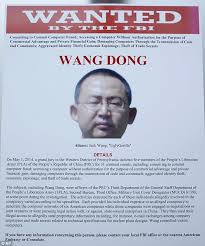
Above: Extended version.
Posted by Holden Oliver (Kitzbühel Desk) at 11:59 PM | Comments (0)
Dan Harris's China Law: Contracts That Work.
Seattle-based Dan Harris, at his enduring, practical China Law Blog discusses China Contracts That Work. Dan's post begins:
There are three rules for making contracts enforceable in China:
Make the jurisdiction a China court.
Make the governing law Chinese law.
Make the governing language Chinese.
American companies routinely insist on contract provisions that effectively render their contracts unenforceable in China. By their own efforts, they make their contracts worthless, much to the amusement of the Chinese side of the transaction.
Calling for U.S. court jurisdiction is almost always a disaster because Chinese courts will not enforce U.S. court judgments. If, as is usually the case, the Chinese party has no assets in the United States, the U.S. judgment is effectively worthless.

Dan Harris
Posted by JD Hull at 08:59 PM | Comments (0)
Peter Dennis Blandford Townsend: Do you ever work like he plays?
Posted by JD Hull at 01:05 AM | Comments (0)
Robert C. Townsend: Lawyers, Guns and Politics.
Lawyers take to politics like bears to honey. Other things being equal, try to pick lawyers who are active in politics. The best ones won't try or be able to "fix" things. But they're great antennae.
--Robert C. Townsend, former Avis CEO in chapter "Lawyers Can Be Liabilities", Up The Organization (1970)
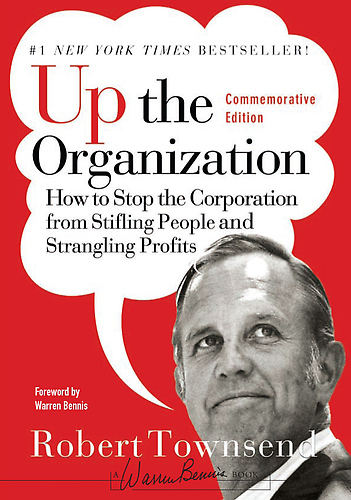
Posted by JD Hull at 12:11 AM | Comments (0)
May 19, 2014
Grand jury in Pittsburgh indicts 5 Chinese "military hackers" on hacking and espionage charges.
Today the U.S. Justice Department announced its indictment of five Chinese military officers for stealing commercial data from American companies and unions. The defendants are in Unit 61398 of the Third Department of the Chinese People’s Liberation Army. They are Wang Dong, Sun Kailiang, Wen Xinyu, Huang Zhenyu, and Gu Chunhui. See DOJ's press release--we believe that it has coined here the phrase "military hacker"--and articles by Reuters and Bloomberg News. The case will be brought out of the well-regarded U.S. Attorney's Office for the Western District of Pennsylvania (Pittsburgh) against the named Chinese officers for spying on several Pittsburgh-based companies, including established firms in steel or energy-related products and services, like Alcoa, U.S. Steel and Westinghouse. China's response has been predictably quick and shrill. The Los Angeles Times: China blasts 'absurd' U.S. charges of cyberespionage. But something other than the well-crafted indictment, compelling press release and China's initial response really caught our attention today. The best symbol of the sheer novelty of this action? And of DOJ's seriousness in pursuing it? It is--hands down--the FBI wanted posters made available to the press today. Is Eric Holder's DOJ in your face or what?
.jpg)
Above: Materials on display during AG Eric Holder's press conference in DC today. (Charles Dharapak/AP)
Posted by JD Hull at 03:54 AM | Comments (0)
Churchill in Paris
A photo from Paris-based A Clear Blue Sky.

Winston Churchill in front of the Petit Palais, Av. Winston-Churchill, 8th Arrondissement.
Posted by JD Hull at 12:59 AM | Comments (0)
May 17, 2014
Bohemian Paris 1840s: The Downwardly Mobile Arts.
At once playful and dead-serious, Paris is "the city where artists love and starve together, shock the bourgeoisie, then die tragically young." Visit Girls' Guide to Paris and read Cynthia Rose's "Arthur Rimbaud: The Poet as Pop Star."
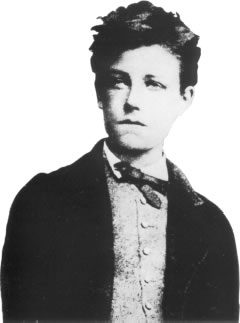
Posted by JD Hull at 01:58 AM | Comments (0)
May 16, 2014
Early Dog Days in California: Upper-90s with increasing existential dread by Monday.
When you shake what you got, and girl, you've got a lot, you're really somethin', child.
When you're hot you're hot, you really shoot your shot, you're dyn-a-mite, child.
--By Williams Satchell Bonner Jones Middlebrooks Pierce & Beck. Some of the best 70s lyrics ever.
What's the deal with the weather and fires? Can Al Gore explain this? I'm in San Diego this week. Yesterday the temperature here was 100 for a good part of the day. Today it is only 97. Then there are The Fires--which you usually don't have this time of year. The Fires tend to start up in late summer. But the local San Diego press can't get enough of The Fires and every year overhypes fire season. Media here is harshing the SoCal Mellow. Maybe those guys just need more to report about? Or more to do? Another city to cover? Get a band together, maybe.
Hotness, Hype and Hipness in America's finest city.
Posted by JD Hull at 11:36 PM | Comments (0)
Pending in Iraq's Parliament: Legislation permitting men to marry 9-year-olds.

Karim Kadim/AP
We missed this one two days ago. National Public Radio reports at one of its blogs that "Iraq Debates Law That Would Allow Men To Marry 9-Year-Old Girls". To be fair, the proposal, as NPR writer Alice Fordham notes, is not expected to get very far. It was lobbed in there as a way to placate and garner support from conservative Muslims in Iraq's boonies. Still, it's an interesting piece that reflects the frustrations of women in Iraq. As one activist Baghdad lawyer interviewed pointed out, women's rights in Iraq may be on the decline, "despite the intellectual openness that women had benefited from following the American occupation". An excerpt from Fordham's post:
Since the U.S.-led invasion of 2003, she [the Baghdad lawyer} says, there's been Internet access, a growing civil society and more opportunities to travel. But conservative religious politics are also on the rise. She says she's seeing women's rights regress.
The proposed legislation is known as the Jaafari law, after a school of Islam by that name. It still needs to be passed by Parliament, which is not expected to take any action until Iraq forms a new government. The country had elections last month, but the results have not been announced; it will likely take weeks or even months of negotiations before a new government is in place.
Posted by JD Hull at 05:15 AM | Comments (0)
May 15, 2014
In these sleepy SoCal towns there's just no place for a street fightin' man.
Each American city you are lawyering in has its own pace and tone. In San Diego, for example, it's all about Being Polite. Like really, really Polite. About 90% of the trial lawyers here actually talk like Mr. Rogers. In Los Angeles, it's the opposite. Rude. Scrappy. Wonderful. In LA it's more about the client, and you know where you stand.
Posted by JD Hull at 08:26 PM | Comments (0)
The Net: European Union Court sides with privacy-based "right to be forgotten" and riles everyone else.
On Tuesday, the highest court in Europe ruled that, in many cases, an EU citizen can ask a search engine to remove unwanted content on the Internet, and the search engine must comply. See, e.g., today's International Business Times. The world's reaction in the simplest terms: Privacy advocates love it, regarding it as a strike for the protection of private citizen data. Free expressionists hate it, correctly regarding the ruling as conferring a government right to censor.

Posted by JD Hull at 12:31 AM | Comments (0)
May 13, 2014
John F. Lynch's "Sitting on the Wall." Or how should Outside Counsel think about GCs and In-house Counsel?
The client wants you on that wall looking after his problem and being mindful of his career. If the night is cold and rainy, and if down in the client’s bedchamber the fire is roaring and the best brandy has been opened, you are still to sit on the wall and look for the Hun.
We're lucky that veteran patent litigator John F. Lynch is a regular reader of this blog. Born and educated in Manhattan, John moved to Texas shortly after the New York bar examination, went to work at a relatively large Texas law firm specializing in intellectual property firm, and eventually became a partner in that firm. In later years, John's firm merged with a larger Washington, D.C. firm, where he would be a partner and chair the new firm's IP group. John now lives in the Seattle area.
About ten years ago, the firm asked John to give a talk on lawyering--with an emphasis on developing and keeping business--to his firm's antitrust group at a Florida retreat. He kept a copy of the talk and, last month, sent it to me as his slightly different but complementary take on this blog's 12 Rules of Client Service. We thought his remarks were not only excellent but also took up a notch the quality of this blog's running conversation on building enduring service cultures at corporate law firms.
In the talk, John is addressing this question: exactly how is a General Counsel, in-house lawyer or other executive at a client company likely to view the true role of outside counsel in almost every engagement--and especially in difficult ones? He answers the question in three parts which he denominates as "three rules". So we asked John if we could print all or some of it here. He agreed. Today we're publishing his Florida talk to his old firm--it's entitled "Sitting on the Wall"--in its entirety. Note that except for a few punctuation changes, and my underlining the key sentence in each of three rules John mentioned in his talk that day, we've taken no liberties with the text:
Good afternoon.
I have been asked to speak briefly about my observations about the practice of law, and in particular about developing business: how have I done it and the guidelines that I have pursued in that effort.
At the start, I will observe that the how and why legal business gets gotten is perhaps the most mysterious phenomenon related to the practice of law. Most of us lawyers are Type A personalities which, as a corollary means we are paranoids. We wonder what we’ve done wrong. Why is it that clients will not hire us? What is it out there that is conspiring against our developing a solid client base producing repeat business year after year?
I cannot dispel the paranoia, in fact I encourage it. It’s healthy particularly if it keeps us alert and attentive to our clients’ wants and needs. But when we look at ourselves, we are looking in the wrong place to answer how to develop clients. We have to look at the clients and what they want.
From a perspective that is at least long, I can offer overarching counsel that you develop clients and client loyalty by doing what I call “sitting on the wall.” It’s kind of a parable, but I’ve never been able to explain it better than “sitting on the wall.” In that parable, the client has invited us to his or her castle for purposes of defending it in one fashion or another, and your message to the client by both words and action is simple, “You go to sleep tonight with your family and do not worry. Even though it’s cold and rainy, I will sit on the wall, and if the Huns come in the dead of night I will pour hot oil on them and drive them away...and I will try not to wake you in the process.”
.jpg)
I wound up with this philosophy about sitting on the wall as a result of making three observations that I call rules about the business of lawyering. As I said, being self centered lawyers as we are it is difficult to begin where we must begin not by looking inside ourselves, but rather by looking inside the individuals from whom we seek employment. Who are these people? What are they looking for? Are they different from us, and if so, how so? These are inquiries into customer needs, customer preferences and customer impressions and these are the core questions that must be made in any service business.
First Rule
And that is what we as lawyers do. We provide a service. So that is the first rule: To recognize and understand that lawyering is a service business. As an individual, you must get out of your head that that you are marketing a product. We are not selling the product of superior legal analysis, or the product of skillful advocacy, or even the product of artful cross-examination or eloquence before a jury. You or your firm will so advertise, but that’s of no consequence.
If you think about it, the typical client is inundated with material about the product offered by law firms, and for the most part he or she probably has concluded that there are a lot of lawyers offering good product.
Now that is not to say that there may not be in this audience a lawyer whose skills in one or another area are so extraordinary, so exceptional, that clients will flock to acquire that product. But even in those instances, I will suggest that greater success could be realized if that extraordinary talent could be repackaged and marketed as a service. And for the overwhelming majority of us, we are selling a service, and we will succeed if our service is good. The essence of service by its very nature means that you are adapting to the client’s needs and desires. You are not requiring the client to adapt to you.
Second Rule
The second rule is to recognize that clients have careers too. It has long been the case that the determination of success or failure may be much more arbitrary for an in-house lawyer or a corporate executive than it is for us as outside counsel in a law firm. After all, we all have the privilege of speaking only about our victories when in the presence of the client, since the client may not be aware of the defeats. But there is no corporate general counsel out there whose entire won-loss record is not known by the CEO who sits over him and who controls his employment. So keep in mind, that the folks who are hiring us are entrusting us with preservation of at least a part of their career. They have a problem of one type or another, and they are putting that problem in our hands for us to solve.
That’s what virtually all lawyering is: problem solving. There is a problem because the client is accused of impinging on the rights of some one else or because that someone else is perceived as intruding somehow on the rights of the client. Sometimes the problem has not yet matured, and the lawyer is asked to assure it does not mature. The client’s commission is: Make the problem go away. Sure, they want to remain informed. Sure, they want to participate. Sure, they want and need a budget that is followed. But the bottom line is that the client gave us a problem to solve, and since we aspire to represent clients in the most difficult and most important cases, what we aspire to is to represent our clients in solving the largest problems that they have. For the individual within the client responsible for hiring us, those are career shaping employments.
It is important that we remain conscious that our employer is not a faceless corporation with a lawsuit or other adversarial contest to win. Our client truly is a lawyer or executive with a career shaping problem to solve. That realization will affect how you deliver your service, and how you work to relieve the inevitable tension that can build during an employment.
Which leads to the third rule.
Third Rule
The third rule is to remain aware that, despite the requests for updates and briefings, in virtually every employment the client is trying to transfer the load that is his problem to you so the problem is no longer a burden, so it no longer inhibits the client’s activity. In short, the client wants you on that wall looking after his problem and being mindful of his career. If the night is cold and rainy, and if down in the client’s bedchamber the fire is roaring and the best brandy has been opened, you are still to sit on the wall and look for the Hun. You may get a visit out there on the wall, and you may even get a hot chocolate, but if you have the client’s ultimate trust you will never be invited into the warm bedchamber while there is a possibility of attack. It’s not ingratitude. It’s simply that you have been entrusted with this job and the job requires sitting on the wall--if you don’t do it someone else will have to. And if that someone else does it and does it well, that someone else will win the client’s trust. Only when the enemy no longer threatens can you leave that post on the wall.
I had a very talented partner who will remain nameless who seemingly had all the tools for success. He was bright, able, eloquent, charming and had an excellent understanding of the law. But if you watched closely around clients, his message was, “You go to sleep tonight with your family and don’t worry. But because it’s raining, I’m going back to my castle to enjoy the fire and perhaps the brandy. But don’t worry. I have a very fast horse, and if the Huns attack, just let me know and I will be here immediately and I will drive them off.” It didn’t sell, and you could see it. That message was communicated indirectly in many ways, but the upshot was that clients were never able to be confident that a problem had been fully offloaded to that lawyer. That lawyer seemed always to impose conditions on the service. There were inconveniences that took precedence over his rendering of service. The product was admittedly good, but the service was lacking.
When you get to the how-to of all of this, I could go on and on, but the take-away is simple. An employment is not about you or about the firm. It is about serving some individuals by solving their problems efficiently as possible. So the hallmarks of a lawyer giving good service are timeliness, reliability, accessibility, and making sure that the best surprise is no surprise, all in the context of a tacit acknowledgement that you as outside counsel are committed to be of service. Also take a genuine interest in the career of the individuals that employ you. Tell them, occasionally in so many words, that you are committed to make them successful. Cultivate a culture of being helpful, of providing assistance. When you are dealing with a corporate client with a corporate law department, become acquainted with those lawyers and encourage them to give you a call not so you can have a client, but so that you can be helpful. For any minor matter and offer to help if they ever need some he, and offer to help on the cuff. As corporate lawyers grow and ascend into positions of responsibility, the parts of their Rolodex that are most precious are the phone numbers of the outside counsel that they can turn to reliably to assume problems from their shoulders and propel their careers. And even if they move across the country, they will continue to call those numbers when the really threatening problems arise.
And that’s what we are in this business for, right? To do the really important stuff and the hard stuff. Lord knows why we want that, but we do, and the way to get there, as far as I can see is by sitting on the wall.
Thanks for the opportunity to speak to you, and I hope your retreat is a dynamite success.
Copyright 2003-2014 John F. Lynch All Rights Reserved.
Posted by JD Hull at 08:08 AM | Comments (0)
Slick Lawyer Answers to Lazy Lawyer Interrogatories: A Southern District Parable.
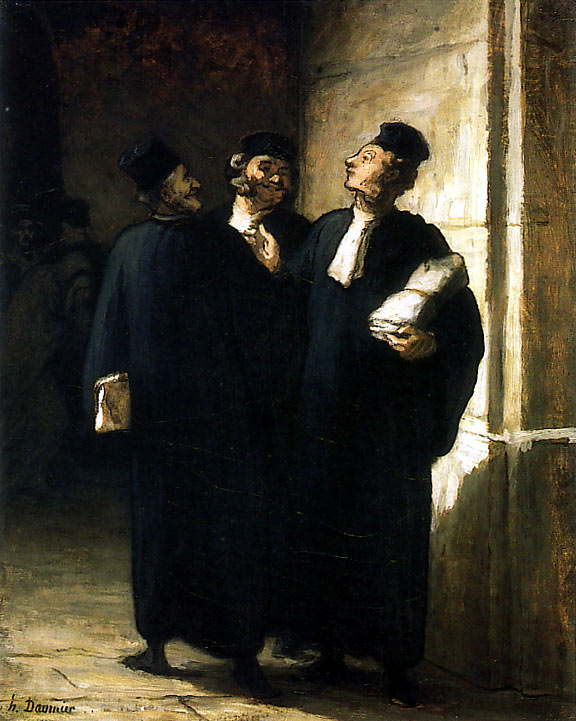
"The Lawyers", 1855, Honoré Daumier (1808-1879)
Written discovery practice shouldn't be a joke. But as business trial lawyers, litigators and in-house counsel know, it is a joke too much of the time.
Not that many years ago, in Manhattan's fabled Southern District, a fed-up federal judge had had enough. He threw up his hands during arguments on a motion to compel and referred to answers to interrogatories by one of the two lawyers before him as "slick lawyer answers to lazy lawyer interrogatories".
A wonderful expression. But we do feel his pain. At this blog, we do love, admire and respect written discovery during the pretrial process in American federal courts. If both efficient and creative--and it should be both--written discovery is a way to shorten (not lengthen or extend) the generally unpredictable, expensive discovery process, and get ready for trial on issues that really belong in the case.
In our firm, for a brief period of time, a fundamentally talented second year associate with the makings of a very good trial lawyer worked in our Pittsburgh office, after having spent one year at another firm. One day, he complained to me that we were putting too much thought and effort into a set of interrogatories under Rule 33, Fed. R. Civ. P. So naturally I listened very carefully.
The new hire very patiently, calmly and slowly--so I could digest a great truth he'd discovered--explained to me that the exercise of serving interrogatories and other written discovery upon counsel for plaintiff was a "routine" and primarily "a way for lawyers to bill time so they could make money".
Nothing more, he said.
He was certain and even adamant about it, too. Nice guy, smart guy, and I really liked him--I still do. Shortly after that conversation, he left our firm. Did he quit or get fired? It does not matter. But it was a very good development for our clients and us when he left.
Complex and hard-fought civil cases really do turn in large measure on the quality and honesty of the discovery questions and requests, including deposition questions, and the responses to them. And well-thought out and strategically-timed written discovery is the best way there is to prepare great depositions--and get ready for trial.
Posted by JD Hull at 12:02 AM | Comments (0)
May 12, 2014
Jack London on Inspiration.
You can't wait for inspiration. You have to go after it with a club.
--Jack London (1876-1916)
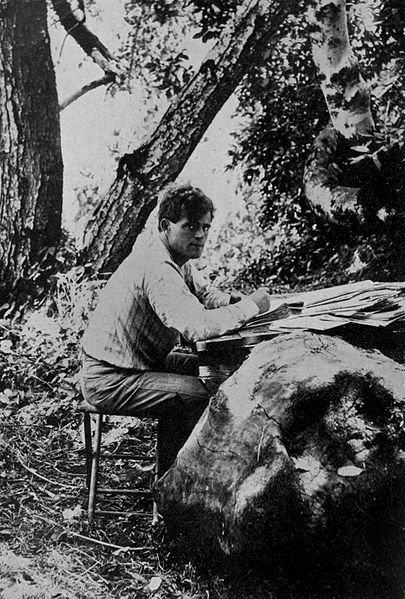
John Griffith "Jack" London in 1905
Posted by JD Hull at 12:59 AM | Comments (0)
May 11, 2014
Oscar Wilde on Moms.
All women become like their mothers. That is their tragedy. No man does, and that is his.
― Oscar Wilde, The Importance of Being Earnest
_1889,_May_23._Picture_by_W._and_D._Downey (3).jpg)
Posted by JD Hull at 12:19 AM | Comments (0)
May 08, 2014
The Great Customer Service Ruse: What If Consumers Got Up Off Their Knees?
Is it just me?
Year after year, the cult of customer/client service "trends" stridently in books, trade journals, company meetings and on the internet. Service gurus are multiplying. Everyone is writing, gushing and testifying about the importance of service, often implying that service is no problem to establish and maintain. Businesses in every industry are proclaiming in giddy, self-congratulatory tones that service is, and has been for the last fifty or so years, a "core value" and "touchstone" of their success. And yet every year, the service that each of us experience on a daily basis in our own lives is getting worse and worse.
The culprits? Just about anyone who sells anything. Retail, especially. Retail banking, insurers, phone companies, utilities and the scads of outside "tech" guys charged with keeping your computers running are the worst. Two notable exceptions: Trader Joe's. GEICO. And that's about it. So let's start getting feisty at stores, coffee shops, on the phone with customer care reps, at doctors' offices, everywhere you pay for something. Remind them all you have options and choices. You're a customer, consumer, client or patient? Get off your knees. Demand things. Make them earn or keep your business.

Pay attention. Jay and Silent Bob want to buy something.
Posted by JD Hull at 11:59 PM | Comments (0)
May 07, 2014
Pittsburgh's Fracking War Part 2: No joy in much of Steelville.
Hardly a mandate. Approved by 9 to 5 vote early this morning was the controversial lease for drilling of natural gas under Pittsburgh parkland using hydraulic fracturing--or fracking. See the Pittsburgh Post-Gazette: "Deer Lakes Park drilling plan approved by Allegheny County Council, 9-5".
Posted by JD Hull at 03:51 AM | Comments (0)
May 06, 2014
Pittsburgh's Fracking War: The Allegheny County Council's Big Night.
In a challenge to fracking that's made national news, anti-fracking groups in Pittsburgh have been a constant thorn in the side of the Allegheny County Council on a proposal for a relatively small fracking lease to drill under public lands. Before the 15-member council tonight is a proposal that calls for the county to enter into a lease with Texas-based Range Resources and Huntley & Huntley, a local driller, to drill for natural gas beneath the Deer Lakes Park.
Under the proposed lease, there would be no drilling on the surface of the 1,180 acre park. Instead, drilling would be on private property in the townships of Frazer and West Deer. Proponents point out that the lease would generate about $8 million dollars to the county (including monies for park improvements) plus 18 percent in royalties, and create needed jobs.
Environmental groups and a diverse galaxy of private citizens are arguing that fracking is known to harm water, air, land and human health, that drilling based on current fracking technologies has proved risky in almost all parts of the world where it has been practiced, and that the proposal is in reality a slick stalking horse for future drilling throughout the Pittsburgh area.
After months of public hearings and informational meetings about the lease proposal, it goes before the council for a final vote.
.jpg)
The Council in action.
Posted by JD Hull at 08:07 PM | Comments (0)
Rule 3: Ensure That Everyone Knows That The Client Is The Main Event
Rule Three: Ensure That Everyone In Your Firm Knows That The Client Is the Main Event.
Conveying what you are doing for clients and how you will accomplish that needs to be transmitted clearly to everyone in your firm: from the big picture to small details: what does the law firm do, who are the clients, what do the clients do, in what city is the general counsel's office, who works with the GC on that project, does she like e-mails or phone calls for short-answer projects? One way to start this process with a new employee is by having her or him read a short, amusingly-written confidential "Practice Guide" (with almost no procedures or "rules") on the firm's overall goals, your firm's service vision, client descriptions and genuinely useful ways to work--before the first day of work. Everyone must know.
Posted by JD Hull at 12:39 PM | Comments (0)
May 05, 2014
Mexico as Hero: Battle of Puebla, May 5, 1862.
Today, other nations in the Americas honor Mexico. In the Battle of Puebla, on May 5, 1862, 4,000 Mexican soldiers defeated a much better-equipped invading French army of 8,000. Since the Battle of Puebla, no nation in the Americas has been invaded by any other European military force.

Posted by JD Hull at 12:34 AM | Comments (0)
May 03, 2014
Elmore Leonard: Just Say It.
I try to leave out the parts that people skip.
--Elmore Leonard (1925-2013)
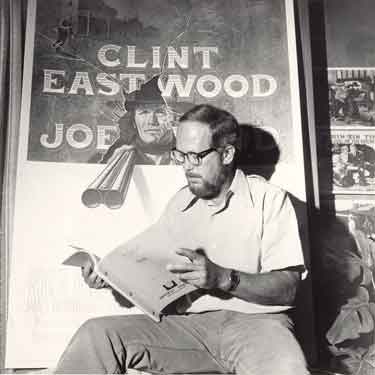
Posted by JD Hull at 11:59 PM | Comments (0)
Guy de Maupassant: The Natural.

Bel-Ami: Guy de Maupassant, 1850-1893
Posted by JD Hull at 09:59 PM | Comments (0)
May 02, 2014
The Judgment of Paris.
Paris was a bold man who presum’d
To judge the beauty of a Goddess.
--John Dryden

The Judgment of Paris, Lucas Cranach the Elder (1472-1553)
Posted by JD Hull at 11:59 PM | Comments (0)
May 01, 2014
May Day: The eternal spring blowout with badness and sass.
May Day is a bit unique among the many old pagan holidays. For 2,200 years, at least in Europe, it's had a long and colorful run on its own, albeit in different forms. But unlike other pagan celebrations, May Day in Europe was never Christianized or abandoned as Christianity spread throughout Europe. It somehow managed to survive and flourish on its own. The first May Day holiday we know much about began in republican Rome about 250 BC. It was a one-day spring festival in honor of the goddess Flora, a fertility deity. Eventually the holiday grew to six days of special events and serious reveling, on April 28-May 3. Known as the Floralia in Roman religion for nearly 600 years, Rome's May Day was a "peoples" or plebeian holiday that took place at the Temple of Flora. (If you've been to Rome even once, you likely looked over the ground where the temple once stood. It's on the edge of the Aventine, a few hundred yards southwest of the Circus Maximus and Palatine Hill.) The Floralia featured drinking, mock gladiator games, animal sacrifices, "the pelting of the crowd" with vegetables (the first food fights?), dancing, nakedness, prostitutes (sex workers were specifically included and often featured), dancing naked prostitutes, theatre, colorful costumes and drinking. Below, one of the the greatest painters of the 1700s gives us a baroque take on the festival and its raw, fun and feral spirit.

"The Empire of Flora", 1744, Giovanni Battista Tiepolo (1696–1770). The scene is supposedly based on Ovid's description of The Floralia.
Posted by JD Hull at 04:06 AM | Comments (0)